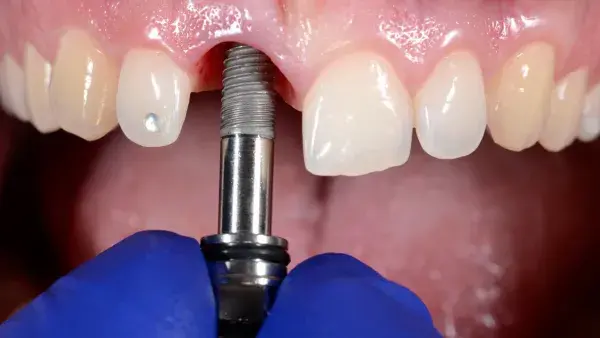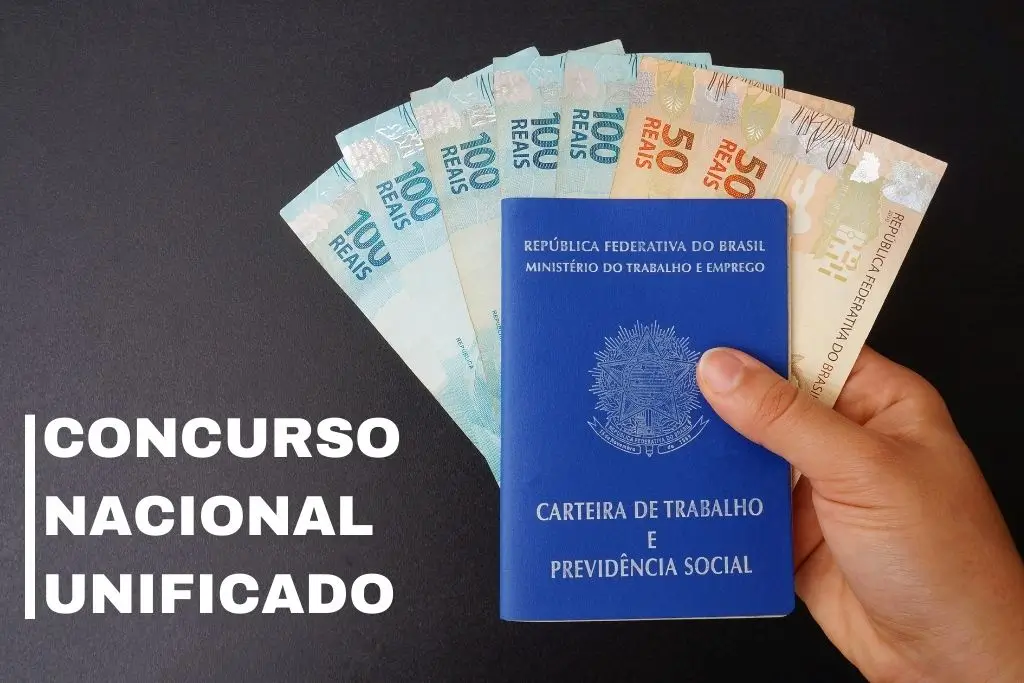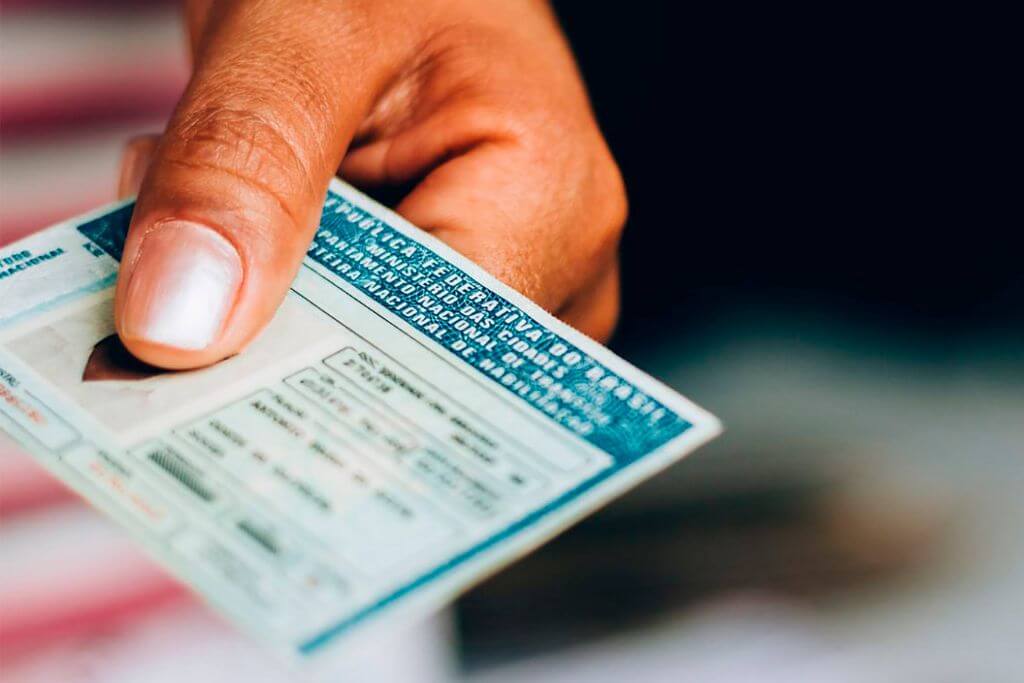Find out how Smiling Brazil provides free dental implants and transforms the oral health of millions of Brazilians.
Adverts
A smile is one of the most striking expressions of our identity and is directly linked to our self-esteem and well-being.
However, for millions of Brazilians, the lack of access to specialised dental treatments, such as dental implants, compromises oral health and confidence in their smile.
In response to this need, the Smiling Brazil programme, created by the government, expanded access to dental implants and other complex treatments, offering them free of charge to the low-income population.
Adverts
Brasil Sorridente was created with the aim of improving oral health and democratising access to specialised treatments.
As well as allowing citizens to restore their oral functions, such as chewing and speaking, dental implants restore dignity and well-being to those who have lost teeth.
In the past, treatment was only available in private clinics and was inaccessible to a large part of the population.
Now, with the support of the SUS and the Dental Speciality Centres (CEOs), Brasil Sorridente makes these procedures possible for those who need them most.
In this article, we'll go into detail about how the dental implant procedure works, the benefits of this rehabilitation and who can receive this free treatment through Brasil Sorridente.
If you or someone you know is interested in finding out more about this free treatment opportunity, read on to find out all the details.
Quick Index:
What are dental implants?
A dental implant is a structure made up of a small piece of titanium that is surgically inserted into the maxillary or mandibular bone, acting as an "artificial root" for the new tooth.
A dental prosthesis is attached to the implant, i.e. an artificial tooth that resembles natural teeth in terms of both aesthetics and function.
This procedure is one of the most effective for those who have lost teeth, as it offers a long-lasting and stable solution that improves chewing, speech and oral aesthetics.
Implants are especially beneficial for people who have lost one or more teeth and who, without replacement, could suffer from problems such as misalignment of the remaining teeth, chewing difficulties and even bone loss in the affected area. With implants, these problems are avoided and the bone structure is preserved.
How the procedure works
The process of placing a dental implant takes place in stages and requires the assistance of specialised professionals. Check out the stages of the procedure:

- Evaluation and Initial Planning: The first step is to carry out a full assessment of the patient's oral health. The dentist analyses the condition of the gums and bone where the implant will be inserted, checking that the patient is fit for treatment. Imaging tests, such as X-rays, are used to plan the exact position of the implant.
- Implant placement: Once the assessment has been carried out, the dentist performs the surgical procedure to insert the implant, a small piece of titanium that replaces the root of the missing tooth. This procedure is carried out under local anaesthetic, making it safe and comfortable for the patient.
- Healing period (Osseointegration): After the implant is placed, the patient goes through a healing period during which the bone around the implant fuses to the titanium structure. This process, known as osseointegration, can take between 3 and 6 months, ensuring that the implant is firmly fixed to the bone.
- Fixing dental prostheses: After healing, the dentist places the personalised dental prosthesis over the implant. This prosthesis is made to measure, according to the oral structure and the desired aesthetics, and allows the patient to regain the functionality and appearance of a natural tooth.
Who can receive implants?
The Smiling Brazil programme is aimed at the socially vulnerable population, who often don't have access to specialised dental treatment.
To receive a free dental implant through the programme, the patient must be registered with the Unified Health System (SUS) and seek care at a Basic Health Unit (UBS) or a Dental Specialities Centre (CEO), where an initial screening will be carried out.
Eligibility Criteria:
- Be registered with SUS.
- Be assessed by the dental screening and present a real need for dental implants.
- Be in a situation of economic vulnerability, with priority given to people on low incomes.
Screening is an important step, as it allows health professionals to identify the patients most in need of treatment, prioritising the most urgent cases.
Benefits of Dental Implants
Dental implants bring numerous benefits to patients' health and well-being. In addition to restoring essential functions of the mouth, such as chewing and speech, implants provide a satisfactory and natural aesthetic appearance. Below, we detail the main benefits of dental implants:
- Improved chewing: The dental implant provides a fixed base for the artificial tooth, allowing effective chewing. This helps the patient to resume a healthy and varied diet, avoiding digestion problems.
- Improved speech: Tooth loss can affect speech, impairing pronunciation and the clarity of words. With an implant, the patient regains the ability to speak with confidence and precision.
- Increased self-esteem and confidence: A healthy, complete smile has a direct impact on self-esteem. With dental implants, patients feel more comfortable smiling, which favours social interactions and quality of life.
- Prevention of Bone Loss: When a tooth is lost, the bone where it was inserted can deteriorate over time. Implants help preserve this bone structure, preventing resorption and maintaining the natural shape of the face.
- Durability and cost-effectiveness: Dental implants are a long-lasting solution, with the potential to last for decades when properly cared for. In the context of Smiling Brazil, free dental implants represent a high-value benefit, providing a long-term solution at no cost to the patient.
How can I get an implant through the Programme?
For those wishing to receive a dental implant through Brasil Sorridente, the process is simple and accessible. Check out the step-by-step guide:
- SUS registration: Go to a Basic Health Unit (UBS) with your personal documents (ID, CPF and proof of residence) and register with the Unified Health System (SUS).
- Go to the nearest UBS: Once you've registered, go to the nearest BHU for dental screening. It is there that the dentist will assess your treatment needs and, if necessary, refer you to a specialised service.
- Dental Screening and Assessment: At the UBS, the patient goes through a screening process, where health professionals determine the need for specialised treatment, including dental implants. If a more complex intervention is required, the UBS will refer the patient to a CEO.
- Follow-up via Meu SUS Digital: Use the application My Digital SUS to follow the stages of treatment and keep up to date with appointments and procedures.
Meu SUS Digital App: what is it for?
The app My Digital SUS is a digital tool made available by SUS that makes it easier to keep track of a patient's health history, including the dental treatments provided by Brasil Sorridente.
Through Meu SUS Digital, patients can check the dates of their appointments, access records of procedures and monitor the progress of their treatment in a practical and centralised way.
Advantages of Meu SUS Digital:
- Detailed History: It allows access to the history of treatments carried out, making it easier to monitor dental implants.
- Appointment notifications: The app informs patients of the dates of their next appointments and exams, helping them to organise themselves.
- Oral Health Guidelines: It offers guidance on hygiene and preventive care, complementing dental treatment.
Downloading the app is simple and intuitive to use, allowing patients to keep up to date with their appointments.
*You will be redirected to another site.
Final considerations
The free dental implants offered by Brasil Sorridente are an important achievement for public health and the quality of life of Brazilians.
With this treatment, people who previously had no access to a complete and functional smile can recover not only their oral health, but also their self-esteem and well-being.
By providing a lasting and affordable solution to tooth loss, Smiling Brazil transforms lives, promoting social inclusion and improving the health of millions of Brazilians.
Through Conecte SUS, monitoring treatment becomes even easier and more efficient, helping patients to maintain control over their oral health.
Read also: Youth ID: everything you need to know
Frequently Asked Questions
Who can receive a dental implant through Smiling Brazil?
Brasil Sorridente is aimed at the socially and economically vulnerable population. To be eligible, patients must be registered with the Unified Health System (SUS) and undergo screening at a Basic Health Unit (UBS), where professionals assess the need for specialised treatments, including dental implants.
How do I sign up for the Smiling Brazil programme?
To register, go to a nearby Basic Health Unit (UBS) with your personal documents (ID, CPF and proof of residence) and register with SUS. After registering, an assessment will be made to identify the necessary treatments and referral to specialised services, if necessary.
Does the Smiling Brazil programme cover all types of dental treatment?
Yes, Brasil Sorridente offers a wide range of dental treatments, including preventive, basic and complex procedures, such as cleanings, fillings, prostheses and dental implants. The availability of some treatments may vary depending on the health centre.
Can I follow my treatment through the Meu SUS Digital app?
Yes. The application My Digital SUS allows you to keep track of your health history, including the treatments carried out by Smiling Brazil. In the app, you can see records of appointments, future bookings and oral care guidelines.
How much does dental implant treatment cost through Smiling Brazil?
All the treatments offered by Brasil Sorridente are free for patients registered with SUS. The programme is funded by the federal government and aims to ensure that all Brazilians, especially those in vulnerable situations, have access to complete and affordable oral healthcare.












